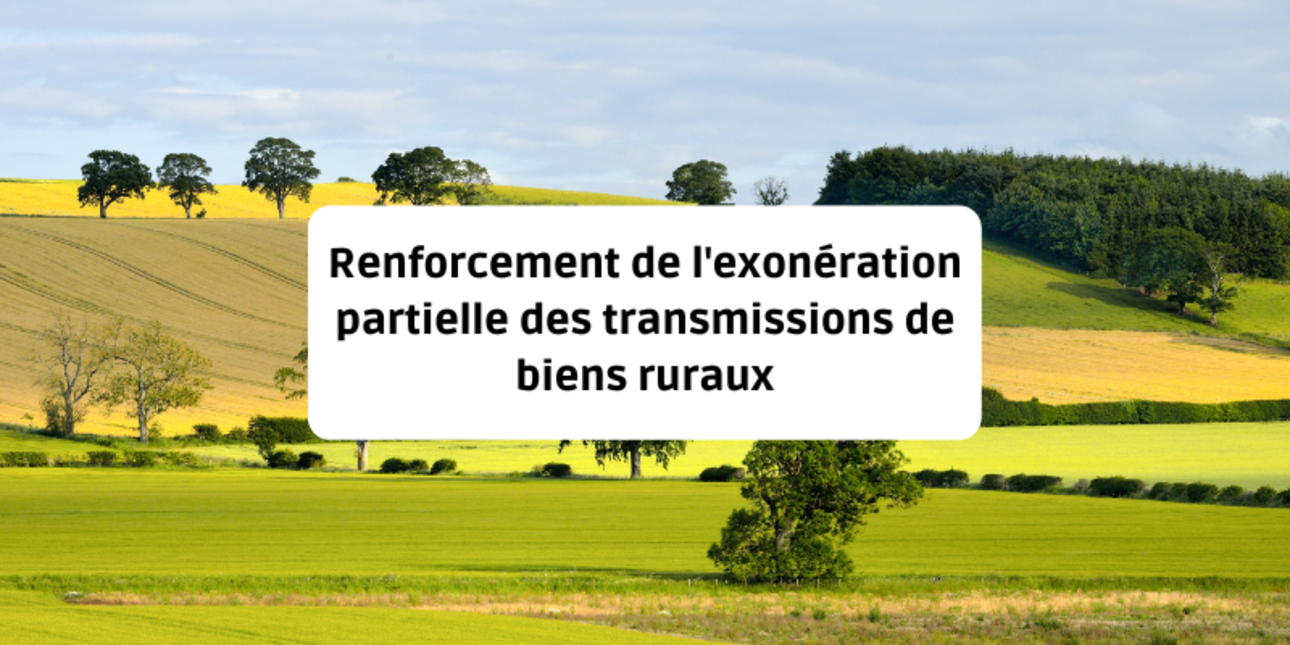
The transfer of rural property is a key moment for families, particularly for farmers and landowners. The government has recently strengthened the partial exemption for transfers of rural property to help ease the tax burden associated with the transfer of such properties.

Transfers of agricultural or wine-growing properties given under long-term leases or involving shares in agricultural land groups (GFA) whose assets are leased under long-term leases may benefit from a partial exemption from transfer duties (Article 793 of the General Tax Code).
This may include parcels of agricultural land but also agricultural buildings.
The exemption applies to 75% of the fraction of the net value of the shares corresponding to property subject to a long-term rural lease or shares in a GFA below €300,000. Above this limit, the exemption is reduced to 50%.
This partial exemption is subject to the condition that the assets transmitted are kept by the beneficiaries for 5 years from the date of the free transfer.
From 1 January 2023, however, this 75% exemption limit has been raised to €500,000, provided that the assets are retained by the beneficiaries for 10 years.
If this condition is not met, the registration duties will be recalled and increased by late interest (currently 0.20% per month).
It should be noted that the allowance applies to both inheritances and gifts. However, it is necessary to wait at least 2 years after the date of registration of the long-term lease to be able to benefit from this regime in the case of a donation.

Let's take a concrete example of the transfer in 2023 of a farm leased under a long-term rural lease to a child, valued at €1,000,000.
If the beneficiaries keep the property for 5 years, the exempt fraction will be €575,000 (€225,000 for the part below €300,000, and €350,000 for the part above €300,000) and the taxable fraction will be €425,000.
If the beneficiaries keep the property for 10 years, the exempt fraction will be €625,000 (€375,000 for the part below €500,000, and €250,000 for the part above €500,000) and the taxable fraction will be €375,000.
On the basis of an average inheritance tax rate of 20%, the basic exemption scheme therefore results in an inheritance tax saving of €115,000. This saving is then increased by €10,000 to €125,000 if the beneficiaries keep the property for 10 years.
The strengthening of the partial exemption for transfers of rural property is a step forward in supporting landowners and farmers in the transfer of their properties. This can help them to reduce the costs associated with the transfer of their property, which can encourage them to continue to invest in their farm and keep it in good condition.
However, it is important to understand the conditions associated with the partial exemption. The beneficiaries of the transfer must retain the transferred assets for a minimum period of 5 years or 10 years, depending on the date of transfer. If the assets are not kept for this period, the duties may be recalled and late interest added.
In conclusion, for landowners and farmers who wish to transfer their property, the strengthening of the partial exemption for transfers of rural property offers additional financial support. However, it is important to consider all the factors involved and to consult an expert (notary, lawyer, jurist) to understand the implications for each particular situation.